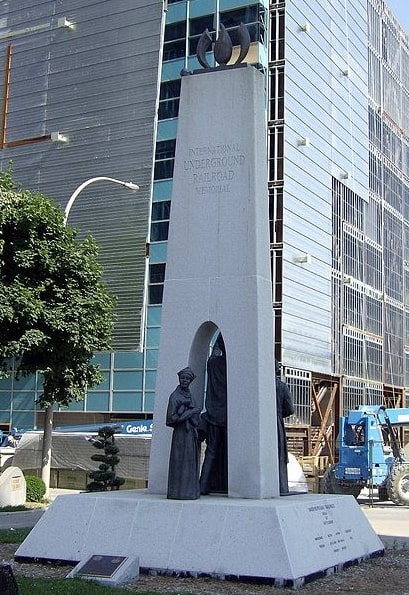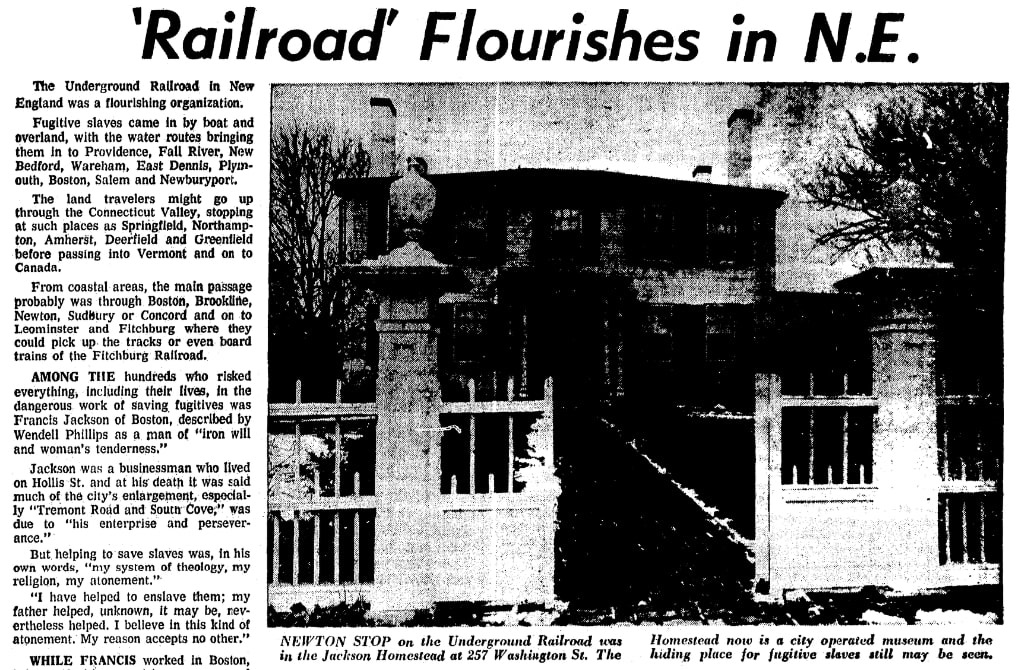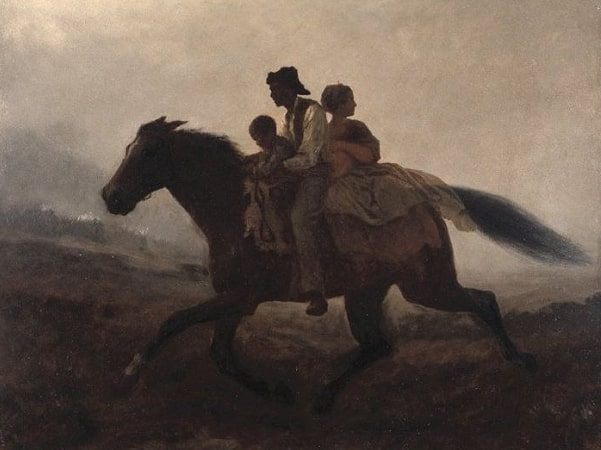Introduction: In this article, Melissa Davenport Berry searches old newspapers to learn about two brothers, William and Francis Jackson, who helped fugitive slaves on the Underground Railroad in Massachusetts. Melissa is a genealogist who has a blog, AnceStory Archives, and a Facebook group, New England Family Genealogy and History.
The Underground Railroad was not an actual railroad – it was a flourishing system of routes, safe houses and sympathizers in the 19th century that helped slaves escape the South and head north to free states and Canada. It was active in New England and elsewhere. Providing this kind of aid was dangerous work because fugitive slave laws made it illegal to provide support to escaped slaves.

You can find a goldmine of stories on the Underground Railroad in a collection of old newspapers, such as GenealogyBank’s Historical Newspaper Archives. I begin with a Boston Herald article that centers around the Boston families who helped run the Underground Railroad and provide a way to freedom.

According to this article:
“Fugitive slaves came [into New England] by boat and overland, with the water routes bringing them in to Providence, Fall River, New Bedford, Wareham, East Dennis, Plymouth, Boston, Salem, and Newburyport.
“The land travelers might go up through the Connecticut Valley, stopping at such places as Springfield, Northampton, Amherst, Deerfield, and Greenfield before passing into Vermont and on to Canada.
“From coastal areas, the main passage probably was through Boston, Brookline, Newton, Sudbury or Concord, and on to Leominster, and Fitchburg, where they could pick up the tracks or even board trains of the Fitchburg Railroad.”
Two brothers, William and Francis Jackson, sons of Major Timothy Jackson and Sarah Winchester, were among the abolitionists who performed the hazardous work of helping fugitive slaves. The belief is the Jackson brothers inherited a trailblazer spirit from their courageous father, who fought first at Lexington and Concord, then throughout the Revolutionary War, including heroic adventures onboard privateers and other war ships. His exploits made him a legend, and his experiences made him a true freedom seeker.
William Jackson (1783-1855) ran an Underground Railroad station in Newton, Massachusetts, at his home located on Washington Street – now the headquarters of the Newton Historical Society. According to this article:
“William was a candlemaker and, though he and his second wife were caring for 17 children, he cheerfully offered shelter, food and clothing to fugitive slaves… [His] daughter Ellen said in later years that the whole family was ‘thoroughly impregnated’ with the idea of helping fugitives and that the door was ‘ever open’ with a warm welcome to those needing assistance.”
Francis Jackson (1789-1861) helped fugitives, raised money, and served as the treasurer of the ani-slavery Boston Vigilance Committee. Francis’ skill as a businessman greatly contributed to the financing of the anti-slavery cause. Helping to save slaves was, in his own words, “My system of theology, my religion, my atonement.”
The famous orator and abolitionist Wendall Phillips described Francis as a man of “iron will and woman’s tenderness.” Francis’ generous nature and moral sentiment would never extinguish in him. I found the contents of his will published in the Lowell Daily Citizen and News, which clearly demonstrates his faithfulness and is worthy of mention:
“…a large amount of his property has been bequeathed directly to persons who have long been his coadjutors in the anti-slavery cause, and for the advancement of the cause of freedom. He gives $100 each [$3,158 today] to [9 people are named] as a token of esteem for their fidelity to moral principle and their devotion to the cause of human freedom… He also names a board of trustees, of whom Wendell Phillips is president, to receive funds designated in the will to be used to create a public sentiment in favor of putting an end to negro slavery.”
He made this statement in his will:
Stay tuned for more.
Related Article:
